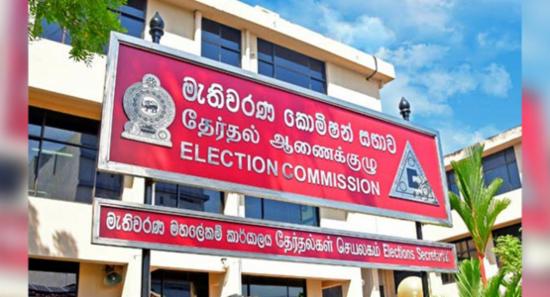.webp)

Catastrophic decline in tax revenue under Gota's government - IMF Governance Diagnostic
COLOMBO (News 1st); The Sri Lanka Governance Diagnostic Assessment September 2023 by the IMF mission has revealed widespread and persistent protests in 2022 over the behaviour of top officials reflected a consensus that corruption had paved the way for the economic crisis.
The GDA noted that the particular configuration of power under the Presidency of Gotabaya Rajapaksa created unique governance challenges.
It added that excessive concentration of authority in the hands of a group of individuals tightly linked by familial ties served to emphasise the political power of a small elite and perhaps assisted in the coordinated improper use of public power.
The GDA noted that even though Gotabaya Rajapaksa's government was in power for less than three-years, its time in office featured catastrophic declines in tax revenues, the signing of investment agreements negotiated in opaque circumstances granting control over state property and extensive long-lasting concessions, as well as dramatic increases in external and domestic debt.
However, according to the IMF mission that prepared the Governance Diagnostic Assessment the Wickremesinghe government's efforts to simply restore past arrangements and institutions are, unlikely to be sufficient to address underlying systemic governance challenges and corruption issues that were broadly exposed in the last years.
It added that grand corruption was perceived to be slightly more frequent than petty, adding that until prompted, respondents do not view corruption as a critical problem, seemingly having accepted it as a regular part of governance in the country.
It noted that high-value corruption issues appear strongly associated with state-owned enterprises and highlight the close relationships between public institutions and private firms, including in the financial sector.
According to the Governance Diagnostic Assessment, corruption appears to be less about actions around specific transactions and more about long-established relationships that bind together public and private elites.
The GDA says that overall, current arrangements act to insulate top government officials from accountability.
It pointed out that governance and corruption issues have imperilled national and social well-being, adding that the recent past has demonstrated the extent of impunity afforded top officials, even for ruinous behaviour.
The Governance Diagnostic Assessment recommends Sri Lanka develop a National Anticorruption Plan for 2025-2029 on the basis of inclusive consultation, with clearly defined objectives, responsibilities, management and oversight arrangements, and public reporting requirements.
It also calls to make Asset Declarations of Senior Officials publicly available in line with regulatory requirements on a government website.
The United Nations High Commissioner for Human Rights in a recent report pointed out that the 2022 economic crisis is a demonstration of the indivisibility of human rights and how impunity, corruption and the weakening of democratic and rule of law institutions ultimately impacted the economic situation.
It added that it is vital to address the underlying factors in the crisis, including corruption, centralization of power, lack of transparency and institutional checks and balances, and the unresolved legacy of conflict, including accountability
Other Articles
Featured News





.png )


-722285-790684_550x300.jpg)





-789996_550x300.jpg)
-789879_550x300.jpg)
-789357_550x300.jpg)
-788581_550x300.jpg)











.webp)






